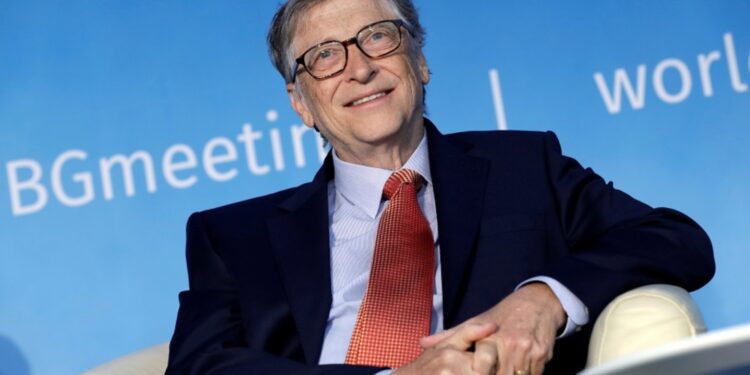Bill Gates, the billionaire co-founder of Microsoft and one of the world’s most influential philanthropists, announced on Thursday that he intends to give away 99% of his wealth within the next two decades.
The move will culminate in the planned closure of the Bill & Melinda Gates Foundation by the end of 2045.
Marking the foundation’s 25th anniversary, Mr. Gates, 69, said the decision to accelerate his giving is rooted in a desire to confront deepening global inequality and ensure that his legacy is defined by impact rather than accumulation.
“People will say a lot of things about me when I die, but I am determined that ‘he died rich’ will not be one of them,” Mr. Gates wrote in a personal blog post. “There are too many urgent problems to solve for me to hold onto resources that could be used to help people.”
Mr. Gates, whose net worth is estimated at $168 billion according to Bloomberg index, said he expects the foundation to distribute as much as $200 billion by 2045, depending on financial markets and inflation.
Since its founding in 2000, the foundation has disbursed more than $100 billion in grants, primarily in global health and poverty alleviation, including initiatives like Gavi, the Vaccine Alliance, and the Global Fund to Fight AIDS, Tuberculosis and Malaria.
What to know
The announcement comes as many of the world’s wealthiest nations scale back their foreign aid budgets. Gates’ statement made thinly veiled references to such cutbacks, including those under U.S. President Donald J. Trump, and emphasized the vital role government support continues to play in global progress.
“It’s unclear whether the world’s richest countries will continue to stand up for their poorest people,” Gates said, noting reductions in aid from the United States, the United Kingdom, and France. “Even with our resources, we can’t eradicate diseases like polio without government help.”
- Gates commended African nations that have reallocated budgets to mitigate the impact of these funding gaps. Still, he stressed that public and private sectors must act in concert to maintain momentum in global health.
- Under the leadership of Gates and his former wife, Melinda French Gates, the foundation has grown into one of the most powerful philanthropic institutions in history. They were later joined by investor Warren E. Buffett, who also committed a significant portion of his wealth to the foundation’s work.
Yet the foundation’s scale has drawn scrutiny from some quarters. Critics have questioned its influence over public health agendas and decision-making bodies such as the World Health Organization, especially during the COVID-19 pandemic, when Gates was the subject of widespread misinformation and conspiracy theories.
Looking forward, Gates expressed hope that other wealthy individuals would follow his example.
“I hope other wealthy people consider how much they can accelerate progress for the world’s poorest if they increased the pace and scale of their giving,” he wrote. “Because it is such a profoundly impactful way to give back to society.”
The foundation, which will see its annual spending rise to $9 billion by 2026, is expected to operate until it has expended 99% of Gates’ fortune, a departure from earlier plans to continue operations long after the founders’ deaths.
















